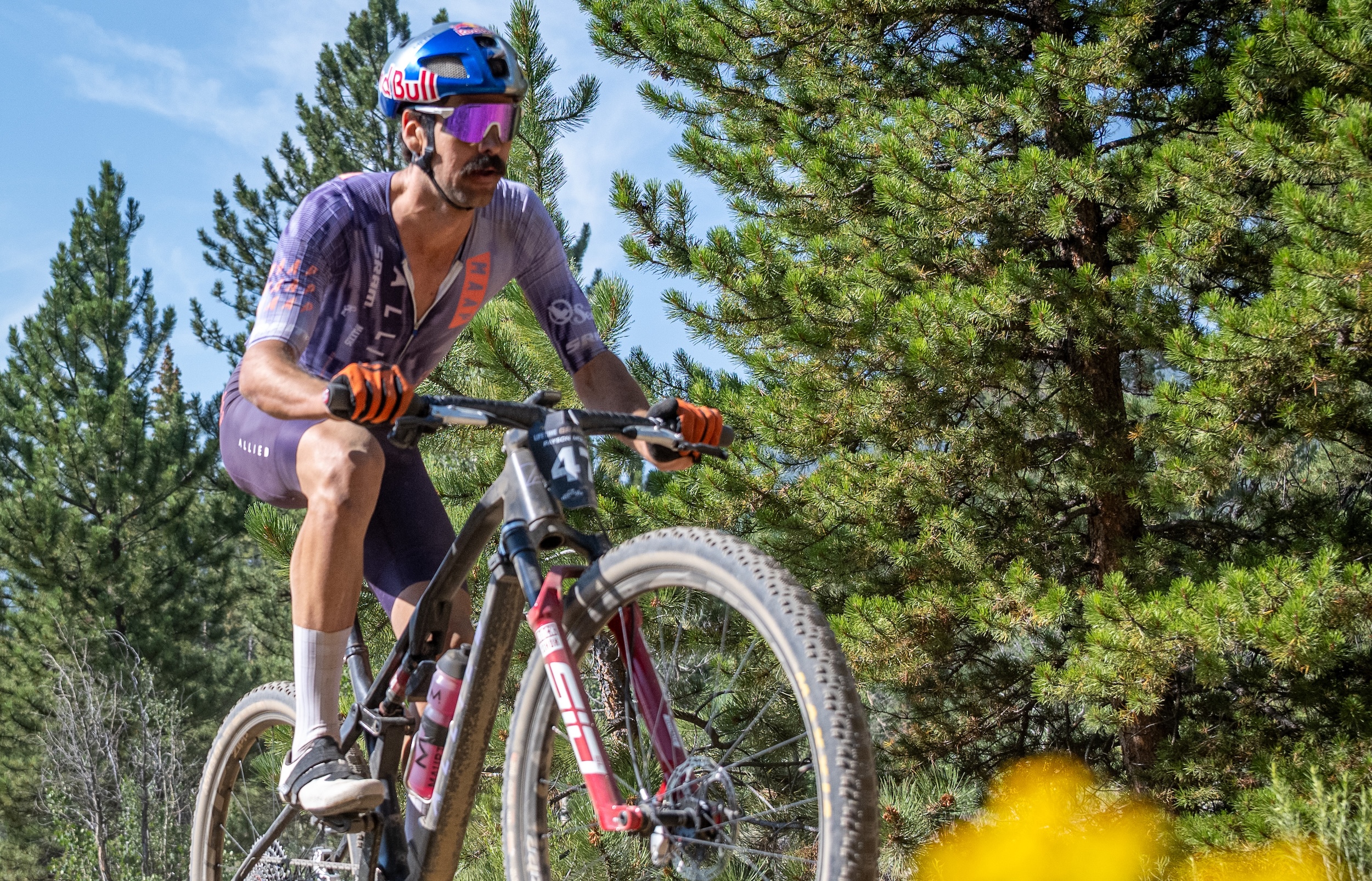Pinot: I was convinced I was going to win the Tour de France
Frenchman's dreams end just two days from Paris
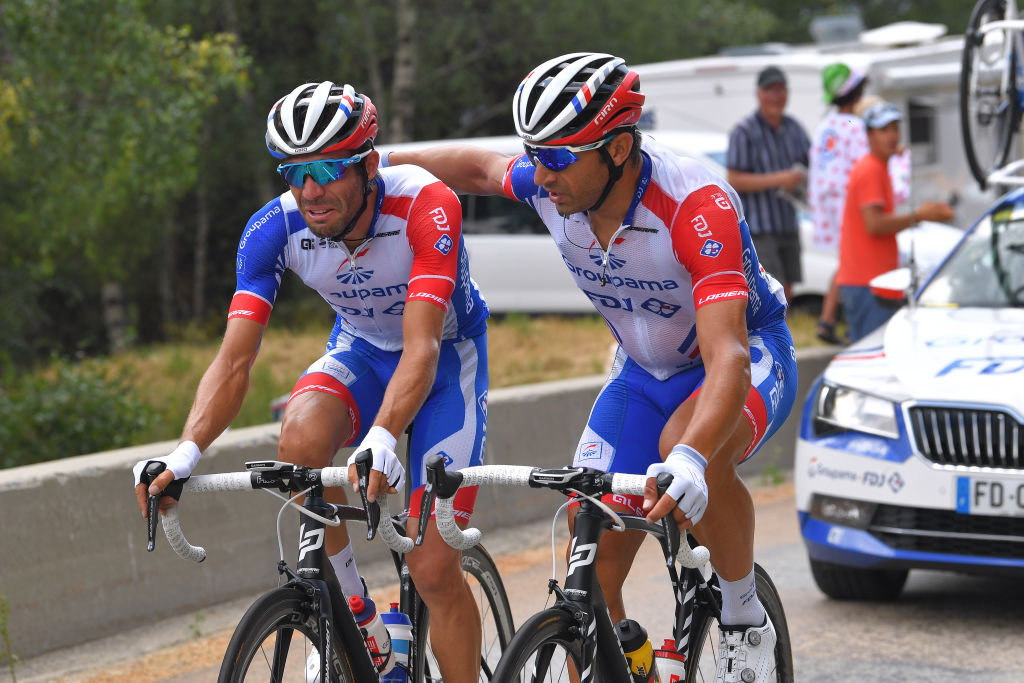
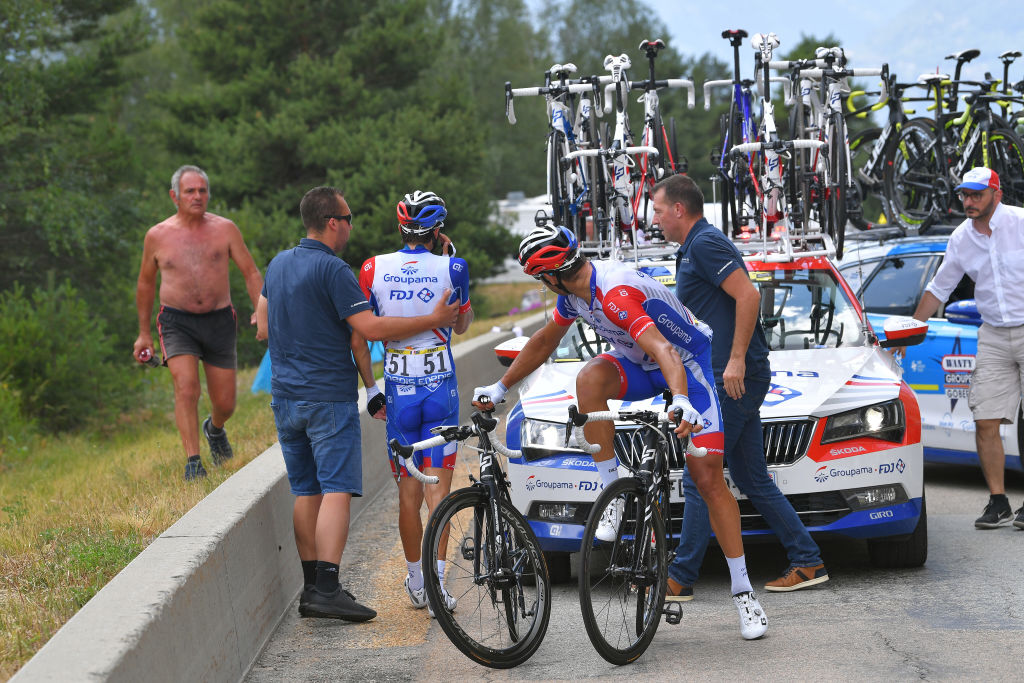
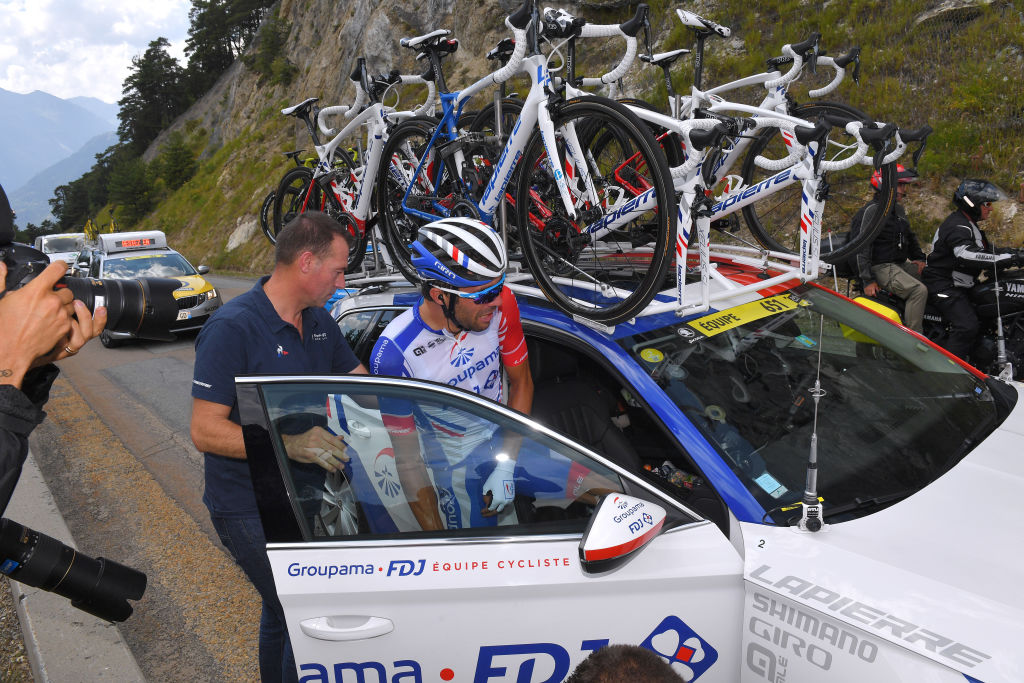
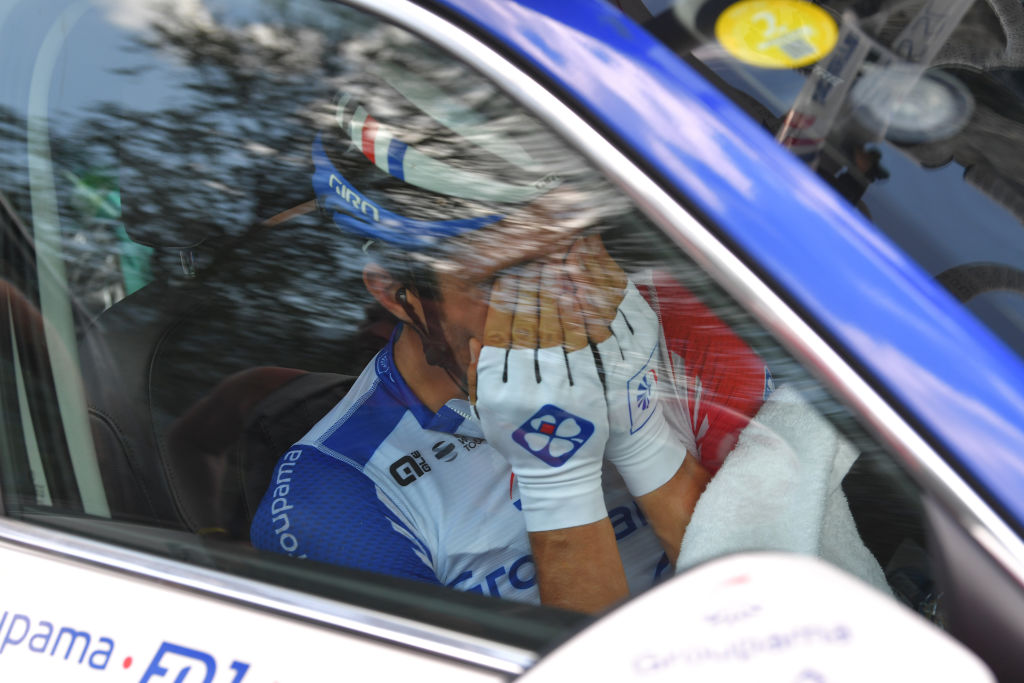
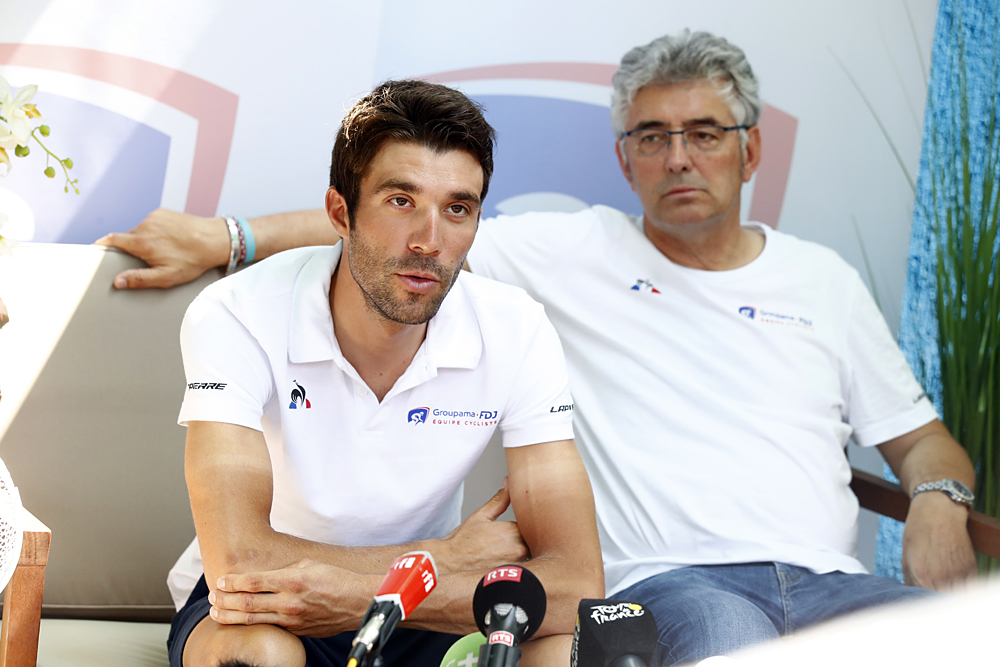
It was hard to watch but impossible to take your eyes off. Thibaut Pinot's exit from the Tour de France during stage 19 on Friday was sport at its cruellest, but also its most visceral. The Frenchman had soared in the Pyrenees last weekend and cried tears of joy. In the Alps, he collapsed and cried tears of distress. The two extremes of emotion, and the inextricable link between them, are why we keep tuning in.
"Thibaut has big highs and big lows," Pinot's brother and coach, Julien, had said somewhat portentously that very morning.
These were new depths.
"It's the biggest disappointment of my career," Pinot said, having arrived at his team's hotel in Tignes by car.
Understanding the nature of Pinot's pain requires context beyond the confines of these past three weeks. The Groupama-FDJ leader's relationship with the Tour is a complicated one, stretching back to the heady days of his 2012 debut and that solo victory in Porrentruy. A podium finish in Paris followed in 2014, but the subsequent years saw him buckle under the burden of home expectation, and he chose to seek success away from the glare of France.
It paid off, and he won Il Lombardia and two stages of the Vuelta a Espana last year. Massive highs, but then again, as his brother said, they came only after a massive low. Pinot was third overall at last year's Giro d'Italia until he fell apart on the penultimate day, succumbing so badly to illness he wound up in a hospital bed. It took a huge effort and a long time to pick up the pieces, but he did, and he returned to the Tour de France this year with his palmares and self-belief both bolstered.
At this year's Tour, Pinot had already known highs and lows. Losing nearly two minutes in the crosswinds on stage 10 was a bitter blow, but he bounced back in the Pyrenees to win on the Col du Tourmalet and gain enough time at Prat d'Albis the following day to put himself right back in the thick of it. Pinot was the strongest rider in the race, and suddenly France was staring at the prospect – not just the hope – of a first home champion since 1985.
The latest race content, interviews, features, reviews and expert buying guides, direct to your inbox!
That all came crumbling down 30km into stage 19. Suffering the knock-on effects of an innocuous blow to the thigh two days previously, he climbed off his bike in tears and placed his head in his hands in his team car. The pictures spoke a thousand words.
"Since Sunday in the Pyrenees, I felt I was capable of doing it," said Pinot, who'd said ahead of the race he knew that one day the stars would align for him.
"Without this problem, I'm sure I would have done it. I was convinced, and nothing was going to stop me. In the end, we'll never know. It will take some time to come to terms with that."
The injury to the thigh had seemed like nothing at the time, and he wasn't even sure how he'd done it. However, on Thursday's stage to Valloire, it started to hurt, and by the evening he was struggling to walk up the stairs to his hotel room. He put on a brave face, hoped for the best, and started on Friday, but it was quickly apparent his dreams were over.
"This morning it was bad. I gave it a go but there was nothing to be done," Pinot said. "I believed in it. I'm someone who always fights. I hoped for that little bit of luck for it to pass, but it didn't. I think it's the biggest disappointment of my career."
Madiot: You have to accept the difficult moments
Pinot's dramatic collapse at last year's Giro saw his Groupama-FDJ teammates rally around him and accompany him at snail's pace up to Cervinia, in one of the most striking images of the race. A similar collective effort of solidarity was needed again on Friday.
Pinot, his face cracking with emotion, was arm-in-arm with William Bonnet when he wheeled to a halt. Back at the team hotel, team manager Marc Madiot sat down with Pinot and they hugged it out.
"It's a huge disappointment, and there's no set way of dealing with it," Madiot said.
"It's tough to swallow, and for Thibaut even more so, but that's part of sport, and it's also what makes the moments of success even more intense. You have to accept the difficult moments and, above all, stay close to your rider when he's in difficulty."
Madiot recalled the words he'd used to describe Pinot as he roared him on to victory on the Tourmalet. "T'es grand aujourd'hui!" he'd screamed – "You're great today!"
"I said the other day, maybe a little strongly, that he was great. For me, he is great, and he remains so," Madiot said. "He's a rider who has always shown us a lot of affection, he has always given a lot to his team, the staff, the partners, and we must be with him in this moment, fully.
"It's my 23rd Tour de France as a team manager. I've known great moments of distress, and it's in those moments that you become stronger as a team. It's not when everything's going well that you become a good team; it's when things are going badly and times are hard that you come together. When you do that, you set out again stronger."
It will take time, but the wounds will heal, as they did last year.
"I'm convinced of one thing: he will come back stronger," said Madiot. "We'll be back next year with a determined team, who will take confidence from the very good things we did at this Tour. I'm convinced that, if we don't give in, one day or another we can beat the best. One day we'll get there."
If so, the joy of victory, as Madiot says, will be a hundred times more intense. For now, the pain will have to be endured. The race goes on without him, but Thibaut Pinot's contribution to the 2019 Tour de France will not be forgotten.
Patrick is a freelance sports writer and editor. He’s an NCTJ-accredited journalist with a bachelor’s degree in modern languages (French and Spanish). Patrick worked full-time at Cyclingnews for eight years between 2015 and 2023, latterly as Deputy Editor.

